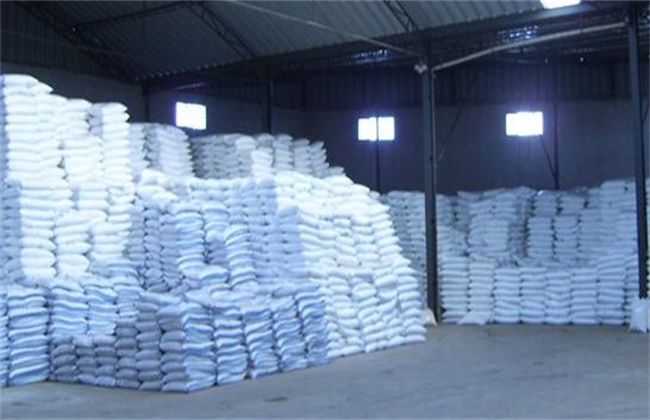Storage methods and matters needing attention of chemical fertilizer in winter
Chemical fertilizer is a nutritious food for high yield of crops. many farmers will use winter leisure to store chemical fertilizer. some people think that chemical fertilizer will not volatilize because of the cold and low temperature in winter. in fact, chemical fertilizer is not non-volatile in winter, but compared with the high temperature season, its volatilization rate is slow and the volatilization is less. So you should be allowed to store chemical fertilizer again in winter? What should I pay attention to? Come and have a look with the editor.

I. Storage method
1. Sealed preservation
Many nitrogen fertilizers, such as ammonium sulfate, ammonium bicarbonate, ammonium nitrate, etc., are easy to decompose and volatilize during storage because of their unstable properties, so this kind of chemical fertilizer should be stored in airtight plastic bags or other sealed corrosion-resistant containers.
2. Grasp the stacking height
Fertilizer storage fertilizer, so a large amount, but farmers in the accumulation, should pay attention to the height, generally not more than 2 meters, and the time should not be too long, this will lead to fertilizer caking, when fertilization, it is very difficult, the effect will be hindered.
3. Avoid volatilization
Chemical fertilizers are corrosive to a certain extent, especially strong acidic and alkaline fertilizers, which are more corrosive, so farmers must pay attention to avoid long-term contact during storage, let alone store with feed, which will cause poisoning.
II. Points for attention
1. Anti-volatilization loss
Ammonium bicarbonate in chemical fertilizer is an unstable compound, which is easily decomposed into ammonia, carbon dioxide and water, resulting in the loss of nitrogen. The higher the temperature, the faster the decomposition rate. Therefore, the seal must be firmly sealed when storing. The plastic bags should not be damaged. When storing ammonia, a layer of waste engine oil can be added to prevent ammonia volatilization. Nitrogen fertilizer and calcium superphosphate are forbidden to be mixed with lime, plant ash, calcium magnesium phosphate fertilizer and so on.
2. Prevent moisture absorption and caking
Most of the solid fertilizers have hygroscopicity, and some will agglomerate and deteriorate after being exposed to moisture, such as ammonium bicarbonate is easy to absorb moisture and cause ammonia volatilization loss; potassium chloride has hygroscopicity and is easy to agglomerate by moisture; ammonium nitrate is easy to agglomerate and dissolve by moisture and so on. First of all, use masonry, planks or other things to protect against moisture and water before storage.
3. Fire prevention and baking in the sun
Nitrogen fertilizers will accelerate volatilization in the sun or high temperature, such as ammonium nitrate, potassium nitrate and other chemical fertilizers are flammable and explosive. During storage, we should strictly guard against fireworks, violent collisions and direct sunlight, and should not collide with oil or firewood. Sulfur and other combustibles are stacked together to avoid explosion and fire.
4. Anti-corrosion poisoning
Chemical fertilizer is more or less corrosive and will volatilize a pungent smell during storage, which is toxic to the human body. Direct contact should be avoided for a long time, and should not be stored together with food and feed, so as not to cause human and animal poisoning.
The above is the introduction of chemical fertilizer storage methods and matters needing attention in winter. I hope it can help you. If you want to know more about it, please follow us.
Related
- Fuxing push coffee new agricultural production and marketing class: lack of small-scale processing plants
- Jujube rice field leisure farm deep ploughing Yilan for five years to create a space for organic food and play
- Nongyu Farm-A trial of organic papaya for brave women with advanced technology
- Four points for attention in the prevention and control of diseases and insect pests of edible fungi
- How to add nutrient solution to Edible Fungi
- Is there any good way to control edible fungus mites?
- Open Inoculation Technology of Edible Fungi
- Is there any clever way to use fertilizer for edible fungus in winter?
- What agents are used to kill the pathogens of edible fungi in the mushroom shed?
- Rapid drying of Edible Fungi



